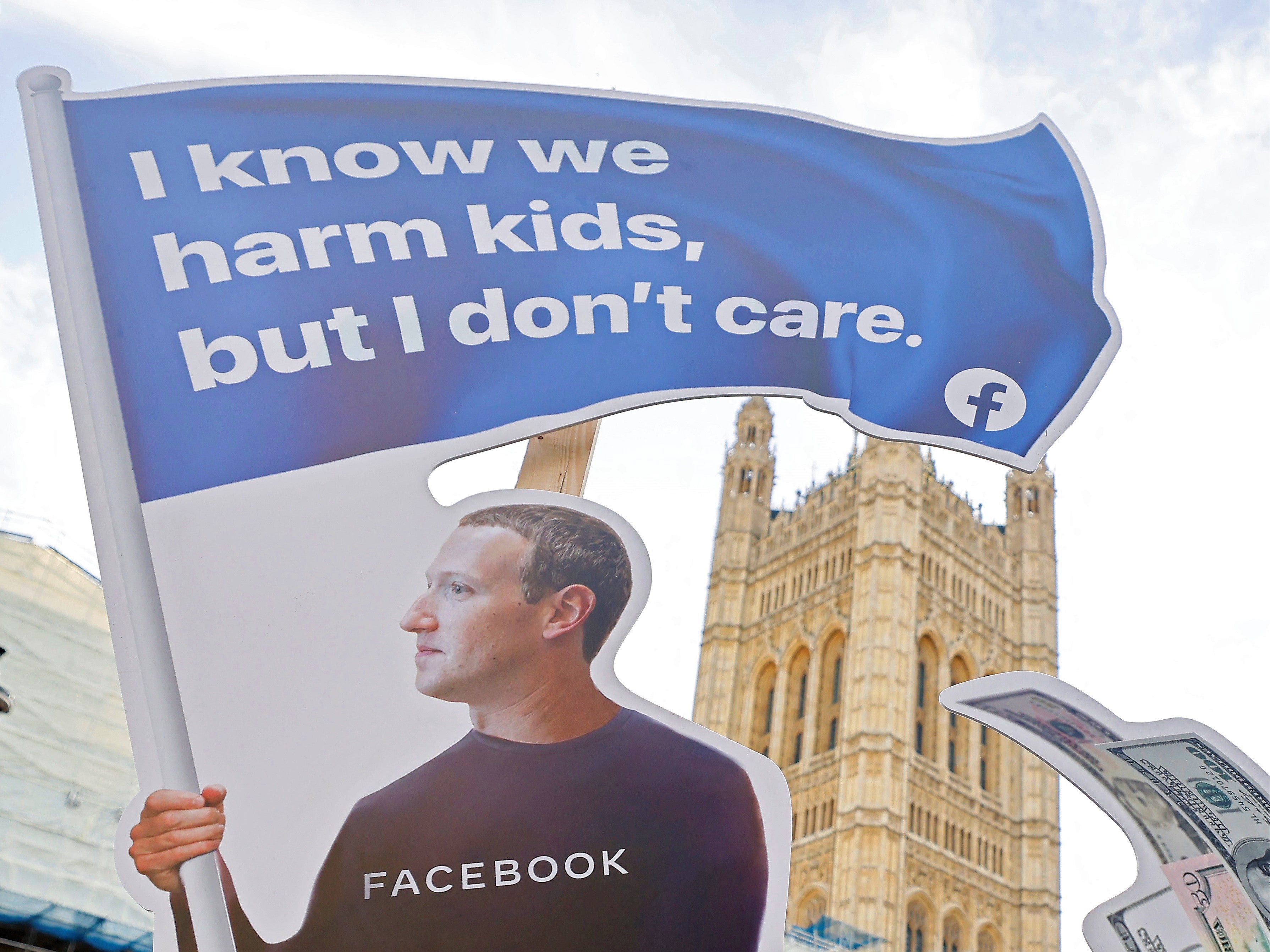Facebook targets children with ‘surveillance ads’, research claims
Practice is ‘especially concerning’ as targeting may include weight loss ads served to teens with emerging eating disorders

Your support helps us to tell the story
From reproductive rights to climate change to Big Tech, The Independent is on the ground when the story is developing. Whether it's investigating the financials of Elon Musk's pro-Trump PAC or producing our latest documentary, 'The A Word', which shines a light on the American women fighting for reproductive rights, we know how important it is to parse out the facts from the messaging.
At such a critical moment in US history, we need reporters on the ground. Your donation allows us to keep sending journalists to speak to both sides of the story.
The Independent is trusted by Americans across the entire political spectrum. And unlike many other quality news outlets, we choose not to lock Americans out of our reporting and analysis with paywalls. We believe quality journalism should be available to everyone, paid for by those who can afford it.
Your support makes all the difference.Facebook is still harvesting children’s personal data and targeting teens with “surveillance advertising” despite pledging to end the practice earlier this year, according to new research.
In July, Facebook announced that it would only allow advertisers to target ads to people under 18 based on their age, gender and location. In September, the firm’s global head of safety Antigone Davis reaffirmed this when testifying in front of the US Senate.
“We have very limited advertising to young people,” she said. “You can only actually now target a young person based on their gender, age, or location.”
The new revelations suggest Facebook no longer allows advertisers to directly target children but instead uses data from their online behaviour to power an AI “Delivery System” to optimise targeted ads to them.
“Replacing ‘targeting selected by advertisers’ with ‘optimisation selected by a machine learning delivery system’ does not represent a demonstrable improvement for children, despite Facebook’s claims in July,” an international coalition of civil liberties and child protection organisations wrote in an open letter to Facebook boss Mark Zuckerberg on Tuesday.
“Facebook is still using the vast amount of data it collects about young people in order to determine which children are most likely to be vulnerable to a given ad.”
The open letter stated that the practice was especially concerning as the optimised targeting may include things like weight loss ads served to teens with emerging eating disorders.
“Far from changing their systems to improve things for children, Facebook has yet again put their interests first, unleashed their algorithms and may have actually made things worse for children,” said Dr Rys Farthing, director of children’s policy at digital threat organisation Reset Australia, who led the research. “They seem unable to act in children’s best interests.”
Oliver Hayes, policy and campaigns lead at Global Action Plan, added: “It is deeply cynical to trumpet the end of targeted ads to kids, all the while harvesting teens’ data to fuel powerful ‘optimised’ ads delivered by AI.
“Surveillance ads to kids are invasive, manipulative, and unpopular. Clearly, Facebook knew as much when it announced its July changes. But their attempt to score a PR win while continuing to spy on kids for profit has now been called out.”
Facebook responded to the research and open letter by claiming the data from teen users appears in its transparency tools because they visit sites and apps that use the tools.
“It’s wrong to say that because we show data in our transparency tools it’s automatically used for ads,” a Facebook spokesperson told The Independent.
“We don’t use data from our advertisers’ and partners’ websites and apps to personalise ads to people under 18. The reason this information shows up in our transparency tools is because teens visit sites or apps that use our business tools. We want to provide transparency into the data we receive, even if it’s not used for ads personalization.”


Join our commenting forum
Join thought-provoking conversations, follow other Independent readers and see their replies
Comments